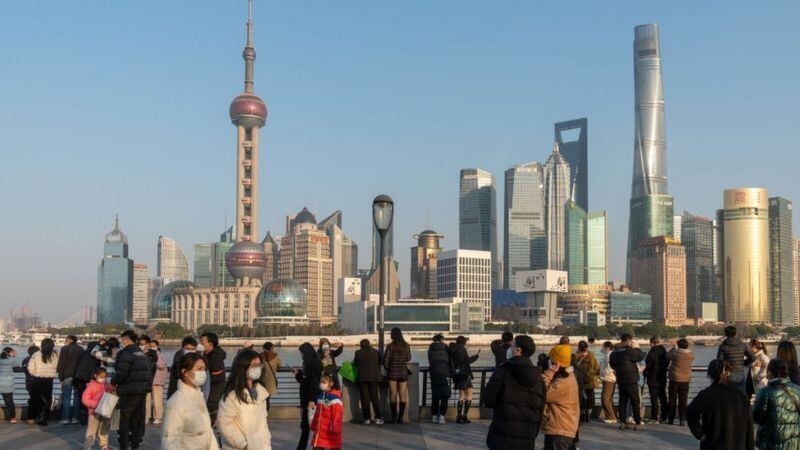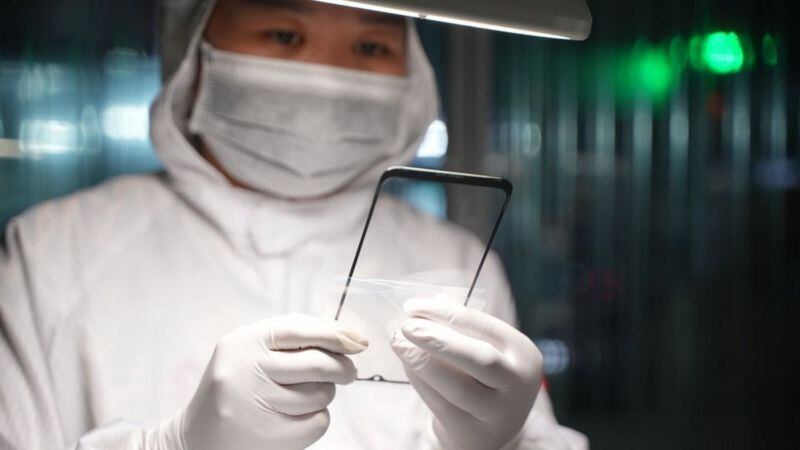It was a harmless-looking photo that brought down Zheng Xiaoqing, a former employee of energy conglomerate General Electric Power.
According to an indictment by the US Department of Justice (DOJ), the US citizen concealed confidential files stolen from his employers in the binary code of a digital photograph of a sunset, which Zheng mailed to himself.
LOOK: How are apps that imitate analog photography conquering the networks?
This is a technique called steganography., which consists of hiding a data file within the code of another data file. Zheng used it on multiple occasions to steal confidential files from General Electric.
General Electric is a multinational conglomerate known for its activities in the healthcare, energy and aerospace sectors, manufacturing everything from refrigerators to aircraft engines.
The information stolen by Zheng related to the design and manufacture of gas and steam turbines, including turbine blades and gaskets.
The content, considered to be of high value, was sent to his accomplice in China. Ultimately, it would benefit the Chinese government, as well as Chinese-based companies and universities.
Zheng was sentenced to two years in prison earlier this month.. It is the latest in a series of similar cases pursued by US authorities.
In November, Chinese national Xu Yanjun, an alleged career spy, was sentenced to 20 years in prison for conspiring to steal trade secrets from several US aircraft and aerospace companies, including General Electric.
The theft of trade secrets is part of a broader fight in which China strives to acquire technological know-how to boost its economy and its defiance of the geopolitical order, while the United States does everything possible to prevent a serious competitor to its power from emerging.
LOOK: As in ‘Terminator 2’: create a robot capable of melting, going through bars and regenerating | VIDEO
Trade secret theft is attractive because it allows countries “jumping up global value chains relatively quickly, and without the costs, both in terms of time and money, of relying on indigenous skills”explained to the BBC Nick Marro, of the Intelligence Unit of The Economist.
Last July, the director of the FBI, Christopher Wray, stated at a meeting of businessmen and academics held in London that China intended to “plunder” the intellectual property of Western companies to accelerate their own industrial development and end up dominating key sectors.
He warned that he was spying on companies around the world, “From big cities to small towns, from Fortune 100 companies to start-ups, including those engaged in all kinds of activities, from aviation to artificial intelligence or the pharmaceutical industry.”
At the time, then Chinese Foreign Ministry spokesman Zhao Lijian said Wray was “smearing China” and had a “Cold War mentality.”
China wants to overthrow our status
In the Justice Department’s statement on Zheng, the FBI’s Alan Kohler Jr stated that China targeted ‘American ingenuity’ and sought to “overthrow our status” as a world leader.
Zheng was an engineer specializing in turbine sealing technology, working on various leak containment technologies in steam turbine engineering. According to the Department of Justice, these gaskets optimize turbine performance “either by increasing power or efficiency or by extending engine life.”
The gas turbines that power aircraft are critical to the development of China’s aviation industry.
Aerospace and aviation equipment are among the 10 sectors that the Chinese authorities aim to develop quickly to reduce the country’s dependence on foreign technology and, over time, overcome it.
But Chinese industrial espionage targets many other sectors as well.
According to Ray Wang, founder and CEO of Silicon Valley-based consultancy Constellation Research, these include pharmaceutical development and nanotechnology – engineering and technology done at the nanoscale for use in fields such as medicine, textiles and fabrics. and the automotive A nanometer is one billionth of a meter.
LOOK: Student created a battery that could be “eternal” (can be recharged infinitely many times)
It also includes pharmaceuticals, bioengineering (mimicking biological processes for purposes such as the development of biocompatible prostheses and the growth of regenerative tissues).
Wang cited the anecdote of a former head of research and development at a Fortune 100 company, who told him that “the person I trusted the most” – so close that their children grew up together – turned out to be on the Communist Party payroll. Chinese.
“He kindly explained to me that spies are everywhere”said.

In the past, industrial espionage from countries like Japan, South Korea, Taiwan and Singapore was a concern, Marro said. However, once indigenous companies become innovative market leaders in their own right – and thus begin to want to protect their own intellectual property – their governments begin to pass laws to take the matter more seriously.
“As Chinese companies have become more innovative in the last decade, we have seen in parallel a remarkable strengthening of the protection of national intellectual property rights”Marro asserted.
China has also gained experience getting foreign companies to give up technology under joint venture agreements in exchange for access to the Chinese market. Despite the complaints, the Chinese government has always denied the coercion allegations.
The agreement on piracy is a “joke”
There have been attempts to curb hacking.
In 2015, the United States and China reached an agreement whereby both parties They promised not to carry out “cybernetic theft of intellectual propertyincluding trade secrets or other confidential business information for commercial purposes.”
LOOK: Former Twitter employee denounces that platform engineers have access to any account through the ‘GodMode’ program
The following year, the US National Security Agency accused China of violating the agreement, while acknowledging that the number of attempts to hack government and corporate data had dropped “drastically.”
But observers say the overall impact of the deal has been minimal. Wang claimed it was a “joke” due to the lack of enforcement. Chinese cyber espionage in the United States has been “pervasive” and extends to academic laboratories. “It has spread to all aspects of Western business,” he told the BBC.
However, Lim Tai Wei, of the National University of Singapore, noted that there were no “incontestable definitive studies” on the extent of the phenomenon.
“Some believe that there was a brief dip in Chinese cyber espionage against the United States, but that it resumed its previous level afterwards. Others believe it failed due to the general breakdown of US-China relations.”he added.

In the meantime, The US is now trying to block China’s advances in the key semiconductor industry – vital for everything from smartphones to weapons of war – alleging that China’s use of this technology poses a threat to national security.
In October, Washington announced some of the export controls to date by requiring licenses from companies that export chips to China using US tools or software, no matter where in the world they are made.
LOOK: In Just 72 Hours: A Man Wrote And Illustrated A Children’s Book Using ChatGPT And Midjourney
Washington’s measures also bar US citizens and US permanent resident aliens from working for certain Chinese chip companies.
Marro said that while these measures will slow China’s technological progress, they will also speed up its efforts to remove US and other foreign products from its technology supply chains.
China has been trying for years, with little success, but these political objectives are now more urgent as a result of the recent US controls”, he claimed.
With China also invoking its own national security, it is likely that the battle for technological advantage between the world’s two largest economies intensifies further.
But Wang thinks that The United States still has the advantage.
“My cybersecurity friends tell me that when they hack Chinese sites, the only technology worth doing is American intellectual property”he asserted.
Source: Elcomercio
I have worked in the news industry for over 10 years. I have a vast amount of experience in writing and reporting. I have also worked as an author for a number of years, writing about technology and other topics.
I am a highly skilled and experienced journalist, with a keen eye for detail. I am also an excellent communicator, with superb writing skills. I am passionate about technology and its impact on our world. I am also very interested in current affairs and the latest news stories.
I am a hardworking and dedicated professional, who always strives to produce the best possible work. I am also a team player, who is always willing to help out others.

:quality(75)/cloudfront-us-east-1.images.arcpublishing.com/elcomercio/TPRFL3AWABEKZHHBCSEPN3VQV4.jpg)

:quality(75)/cloudfront-us-east-1.images.arcpublishing.com/elcomercio/UXPGAWIUIJDZ5CY4FT6G4H23FE.jpg)


:quality(75)/cloudfront-us-east-1.images.arcpublishing.com/elcomercio/YJ5XUJKFIFFWLDXY7YCHSWNHBQ.jpg)
